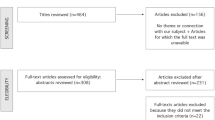Abstract
This article presents classical theory as a modernist endeavor to apprehend the phenomenon of “unity of disunity.” It presents the three ways that classical theory comes to grips with the problem of wholes and parts: the holism of Durkheim, the dialectical materialism of Marx, and the pluralism of Weber. It argues that postmodernism liquidates, rather than solves, the unity of disunity problem by treating “wholes” as mere appearances.
The article contends that postmodernism needs to be taken more seriously than it has been by sociologists but that, ultimately, the challenge presented by postmodernism validates the relevancy of classical theory. The article concludes that the postmodernist influence has diminished sociology’s relevance to real-world problems and, as a result, made the discipline less relevant for undergraduates. It calls for a revitalized sociology of sociology with the capacity to think through the trap formed by neoconservatism on the one side and the micro politics of postmodernism on the other.
Similar content being viewed by others
References
Bell, Daniel. 1973.The Coming of Post-industrial Society. New York: Basic Books.
—————. 1976.The Cultural Contradictions of Capitalism. New York: Basic Books.
-----. 1992. “Interview: Daniel Bell Looks at the Big Picture.”Boston Globe, 25 October.
Berman, Marshall, 1982.All That is Solid Melts into Air. New York: Simon and Schuster.
Best, Steven and D. Kellner, 1991.Postmodern Theory: Critical Interrogations. New York: Guilford Press.
DeFleur, Lois B. 1992. “Strengthening the Position of Sociology Within the University.”Footnotes Vol. 20, No. 9 (November).
Gutman, Herbert. 1977.Work, Culture & Society in Industrializing America. New York: Vintage Books.
Harvey, David. 1989.The Condition of Postmodernity. Cambridge: Basil Blackwell.
Moody, J. Carroll and A. Kessler-Harris (eds.). 1989.Perspectives on American Labor History: The Problems of Synthesis. Dekalb, IL: Northern Illinois University Press.
Otten, Mike. 1992. “Strengthening the State of Sociology on Campus.”Footnotes Vol. 20, No. 9 (November).
Omi, Michael and H. Winant. 1986.Racial Formation in the United States: From the 1960s to the 1980s. New York: Routledge & Kegan Paul.
Sennett, Richard and J. Cobb. 1972.The Hidden Injuries of Class. New York: Knopf.
Swingewood, Alan. 1991.A Short History of Sociological Thought (2nd Edition). New York: St. Martin’s Press.
Zeitlin, Irving M. 1990.Ideology and the Development of Sociological Theory (4th edition). Englewood Cliffs, NJ: Prentice Hall.
Author information
Authors and Affiliations
Rights and permissions
About this article
Cite this article
Lembcke, J.L. Classical theory, postmodernism, and the sociology liberal arts curriculum. Am Soc 24, 55–68 (1993). https://doi.org/10.1007/BF02691919
Issue Date:
DOI: https://doi.org/10.1007/BF02691919




